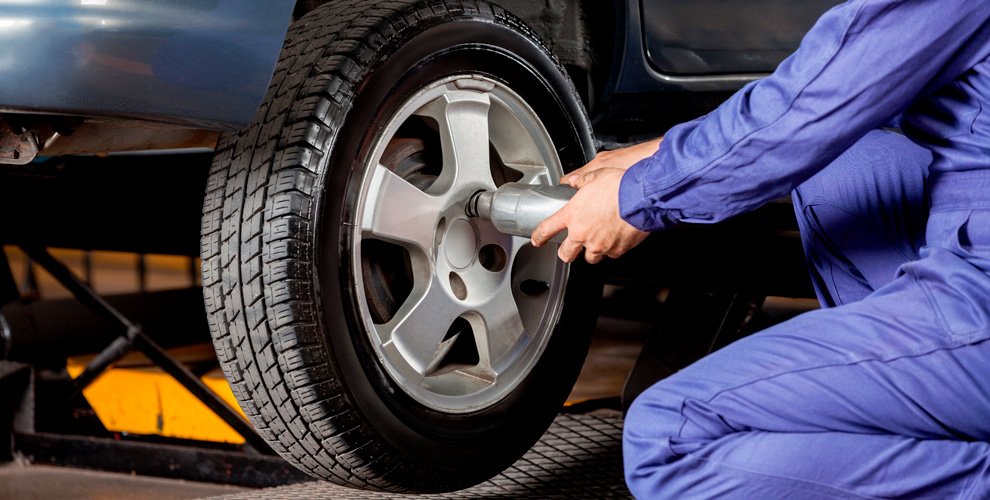Brake Failure Isn’t Rare—Here’s What Causes It and How to Stay Safe
Brake failure can strike unexpectedly, and far too often it does. The moment your foot presses the brake pedal but your vehicle doesn’t respond can be terrifying. Understanding the root causes and how to vigilance can save lives. In this comprehensive blog, we’ll explore why brake failure happens, how you can protect yourself, and when it’s time to seek professional Brake Services.
Discussion Topic:
Have you ever experienced a moment where your brakes felt less responsive than normal? Share your experience—was it frayed brake pads, low fluid, or something else?
What Exactly Is Brake Failure?
Brake failure doesn’t always mean the brakes stop working completely. It might manifest as:
- Spongy or soft brake pedal – your foot sinks further than usual.
- Brakes fade – once strong brakes grow weak after repeated use.
- Complete failure – the worst-case scenario where pressing the pedal yields no response.
Recognizing early warning signs can help you avoid grave danger.
Common Causes of Brake Failure
1. Worn Brake Pads and Rotors
Brake pads compress against the rotor to slow your vehicle. Over time, pads wear thin, reducing friction. Rotors can warp under heat, causing pulsations or grinding noises. Without timely intervention, these can lead to brake failure.
2. Brake Fluid Leak or Low Fluid
Your hydraulic system relies on brake fluid. When fluid levels drop due to leaks or negligence, air pockets form, reducing pressure and effectiveness. Contaminated fluid further compromises performance.
3. Master Cylinder Wear
The master cylinder pushes fluid to your brakes. Over years of use, seals can degrade, leading to internal leaks. When this happens, the pedal may sink without slowing the vehicle.
4. Faulty Brake Lines or Hoses
Brake lines transport fluid under high pressure. Corrosion, damage, or cracks allow fluid to escape. Hoses can swell or crack under pressure. Both result in diminished or lost braking power.
5. Overheated Braking System
Driving downhill or towing heavy loads stresses brakes. Excessive heat causes brake fade—glass-like glazing of pads—and fluid boiling, which releases vapor and compromises pressure.
6. ABS System Malfunction
The Anti-lock Braking System (ABS) prevents wheels from locking. If sensors fail or the ABS unit malfunctions, it may hinder, delay, or disable braking. ABS lights on the dashboard signal this failure.
7. Parking Brake Issues
Neglecting the parking brake can lead to rusted cables or seized mechanisms. In extreme cases, the parking brake locks or won’t release, necessitating emergency intervention.
Warning Signs You Should Never Ignore
- Soft or sinking brake pedal – Indicates air in the system or seal failure.
- Grinding, squealing, or screeching noises – Pads likely worn to their metal core.
- Longer stopping distances – Reduced friction signals danger.
- Brake warning light illumination – Indicator of fluid loss or ABS faults.
- Fluid puddles under the car – Visible sign of a brake fluid leak.
- Vibrations or pulsations while braking – A result of warped rotors.
How to Act Immediately for Safety
- Pump the brakes – If the pedal sinks, pumping can build back pressure.
- Engage the emergency brake gently – Use cautiously; it controls only rear wheels.
- Shift to lower gear – Helps to naturally slow down the vehicle.
- Steer to a safe area – Move toward the shoulder or a low-traffic zone.
- Turn on hazard lights – Alert other drivers around you.
- Call for help – Don’t continue driving a car with undefined brake issues.
These actions can help you avoid collisions while minimizing panic.
Preventative Maintenance: Your Best Defense
Schedule Regular Brake Checks
A qualified mechanic should inspect brake pads, rotors, hoses, and fluid during every routine service. Awareness beats breakdown.
Replace Brake Fluid Periodically
Brake fluid attracts water. Flushing every two years (or manufacturer recommended intervals) keeps your braking responsive and avoids corrosion.
Swap Worn Components Early
Brake pads should be replaced when 3mm thick or less. Rotors should be resurfaced or replaced to maintain smooth contact surfaces.
Clean Brake System Debris
Road grime, dirt, and rust buildup affect pad operation. Cleaning calipers and using brake cleaner on moving parts ensures system integrity.
Don’t Ignore Warning Lights
ABS or brake lights shouldn’t be reset without inspection. These alerts protect your safety.
Avoid Overheating Your Brakes
Downshift while descending hills and avoid “riding” the brakes. Use engine braking to preserve brake life.
Invest in Quality Brake Equipment
Opting for OEM or high-quality aftermarket parts ensures sturdiness, performance, and longer lifespan.
When Professional Brake Services Are Needed
Despite vigilance, internal issues like a failing master cylinder or undetectable fluid leaks require expert attention. If routine brake inspection or surprising symptoms appear, make an appointment for thorough Brakes Service in Dubai with our certified technicians. Pros will:
- Check system pressure and pedal feel
- Trace leaks and test hydraulic performance
- Replace fluid, pads, rotors, lines, or cylinders as needed
- Perform ABS diagnostics
- Provide test-drive verification
Ongoing professional maintenance is the cornerstone of brake reliability.
Real-Life Story: Why You Shouldn’t Wait
A driver reported a slowly dropping brake pedal one evening. Concerned, the vehicle was taken in immediately. The issue? A near-burst brake hose beginning to disintegrate. The quick response made all the difference. If you’ve noticed even minor brake issues, consider booking Brakes Services in Abu Dhabi before things escalate.
Brake Failure Myth-Busting
Myth 1: New brakes don’t need checking
All car parts degrade. Brakes wear faster when driving in hilly, stop-and-go, or heavy-traffic areas.
Myth 2: Brakes last until destroyed
In reality, most brake issues begin early and worsen gradually—inspections can catch small problems before they grow.
Myth 3: All brake fluid is the same
Different types (DOT 3, DOT 4, DOT 5.1) have varying boiling points and performance specs. Use recommended types only.
Myth 4: ABS always prevents accidents
ABS helps maintain control during panic stops, but it doesn’t reduce stopping distance and can fail if unmaintained.
Staying Safe Behind the Wheel
- Stay aware – Don’t wait until problems seem life-threatening.
- Follow inspection guidelines – Check brakes every 12,000–15,000 miles or according to your user manual.
- Listen and feel – Any noise or change in pedal firmness warrants a check.
- Document changes – Keep records of services and noted symptoms.
- Book trusted Brake Services – Professional evaluation catches hidden issues.
Final Thoughts
Brake failure is more common than many think—but it’s also highly avoidable. By understanding causes like worn pads, fluid issues, and component wear, you’re empowered to act. Regular maintenance, attention to warning signs, and prompt professional Brake Services appointments ensure you stay in control and safe on the road.
Drive carefully, stay alert, and remember: when in doubt, get your brakes checked today. Your safety—and lives—depend on it.







